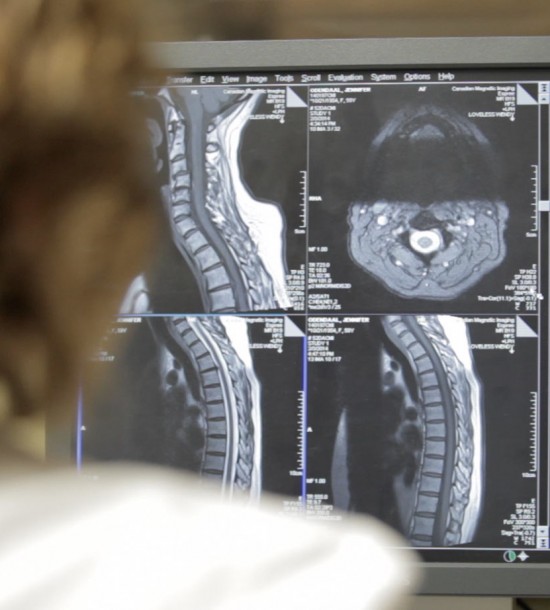Court Rejects Opinion of “Biased”, “Arrogant” and “Argumentative” ICBC Doctor
Posted on by Mussio GoodmanICBC Hired Doctor Biased Against Client Says Judge
Expert witnesses, such as doctors, who come to court to testify, do so in order to give evidence and opinion on complicated matters outside of the realm of the general knowledge of judges and juries.
The “Rules of Court” require that these witnesses give such evidence in a fair and balanced way and not advocate for either party, even if the expert was hired by one party to come to court on that party’s behalf.
In the recent case of Mattice v. Kirby, the Court found that a doctor retained by ICBC to give expert evidence crossed the line from expert to advocate.
In short, the doctor completed a cursory examination of the plaintiff and concluded he was not seriously injured and would likely recover with time. When ruling on the doctor’s expert evidence, the Court was quite critical:
[75] Dr. Keith Christian, an orthopaedic surgeon, provided an expert report for the defence and was also cross-examined at trial. Dr. Christian assessed Mr. Mattice on October 19, 2012 and issued a report the same day. Dr. Christian completed his interview and physical examination of Mr. Mattice in a total of twenty minutes, which included 16 minutes for the interview and four minutes for the physical examination. Dr. Christian did not disagree that his assessment of Mr. Mattice was very brief.
[76] During cross-examination, Dr. Christian was very argumentative and often arrogant. He stated that when asked previously by defence counsel whether he took notes of his meeting with Mr. Mattice, he advised that he did not take notes. At trial Dr. Christian admitted to having taken “scribbles”, which he said were illegible and which he destroyed after dictating his report on the day of the assessment. He said he had denied having taken notes as he had instead made “scribbles” and that no one had asked him if he had taken any “scribbles”. Since Dr. Christian admitted on cross-examination to having used his “scribbles” to dictate his report, there is little doubt in my mind that his “scribbles” were what any doctor would consider “notes” and that Dr. Christian was well aware that his “scribbles” constituted what anyone else would consider to be “notes”. His answers in this inquiry were most evasive and clearly showed a lack of willingness to be frank, open and honest with the Court.
[77] Dr. Christian’s interview and physical examination of Mr. Mattice were without question incomplete. On cross-examination, Dr. Christian admitted that he had not asked Mr. Mattice questions regarding, among many other things: the severity of the accidents of 2008 and 2009; any symptoms in his hands such as pain and “pins and needles”; whether symptoms, if there were any, were improving; bruising on Mr. Mattice’s elbow; the nature of his employment; the extent of the pain in his shoulder; and sleep problems. Dr. Christian also did not inquire about aspects of the accident that were relevant to the injuries claimed, such as Mr. Mattice’s body position in the 2009 accident and how he was impacted in the accident. In written submissions, counsel for Mr. Mattice listed 18 areas of legitimate inquiry that Dr. Christian could have pursued to provide a more informed and unbiased opinion; in my view, there were areas in addition to these 18 which Dr. Christian could have explored, but elected not to do so.
[82] In cross-examination Dr. Christian stated that there was no reason at the time for him to be having shoulder pain, that any fatigue being experienced by Mr. Mattice was “absolutely irrelevant”, that there was no reason for Mr. Mattice not to improve, and that there was no reason for Mr. Mattice to have a problem with his shoulder. He stated that, generally, in his opinion, Mr. Mattice should have been over any injuries from the 2009 accident long before the visit to Dr. Christian.
[83] In conclusion on Dr. Christian’s evidence and opinions, I have no hesitation in finding that his research was incomplete, that he was predisposed to a finding that Mr. Mattice’s injuries were either exaggerated or did not exist, and that by limiting his opinions to musculoskeletal injuries, he was not qualified to opine on the injuries which Mr. Mattice claimed to have suffered in the 2009 accident. As a result, I find the opinions and evidence of Dr. Christian to be of little or no probative value and I am left with the medical-legal opinions of the plaintiff’s expert and all other evidence to make a determination regarding Mr. Mattice’s injuries.
This case underscores the importance of remaining vigilant about the doctors ICBC often attempts to assign to our clients. We strive to oppose examinations involving doctors with a history of bias, and should a claim proceed to trial, we ensure that their bias is properly brought to the Court’s attention.
Tweet


